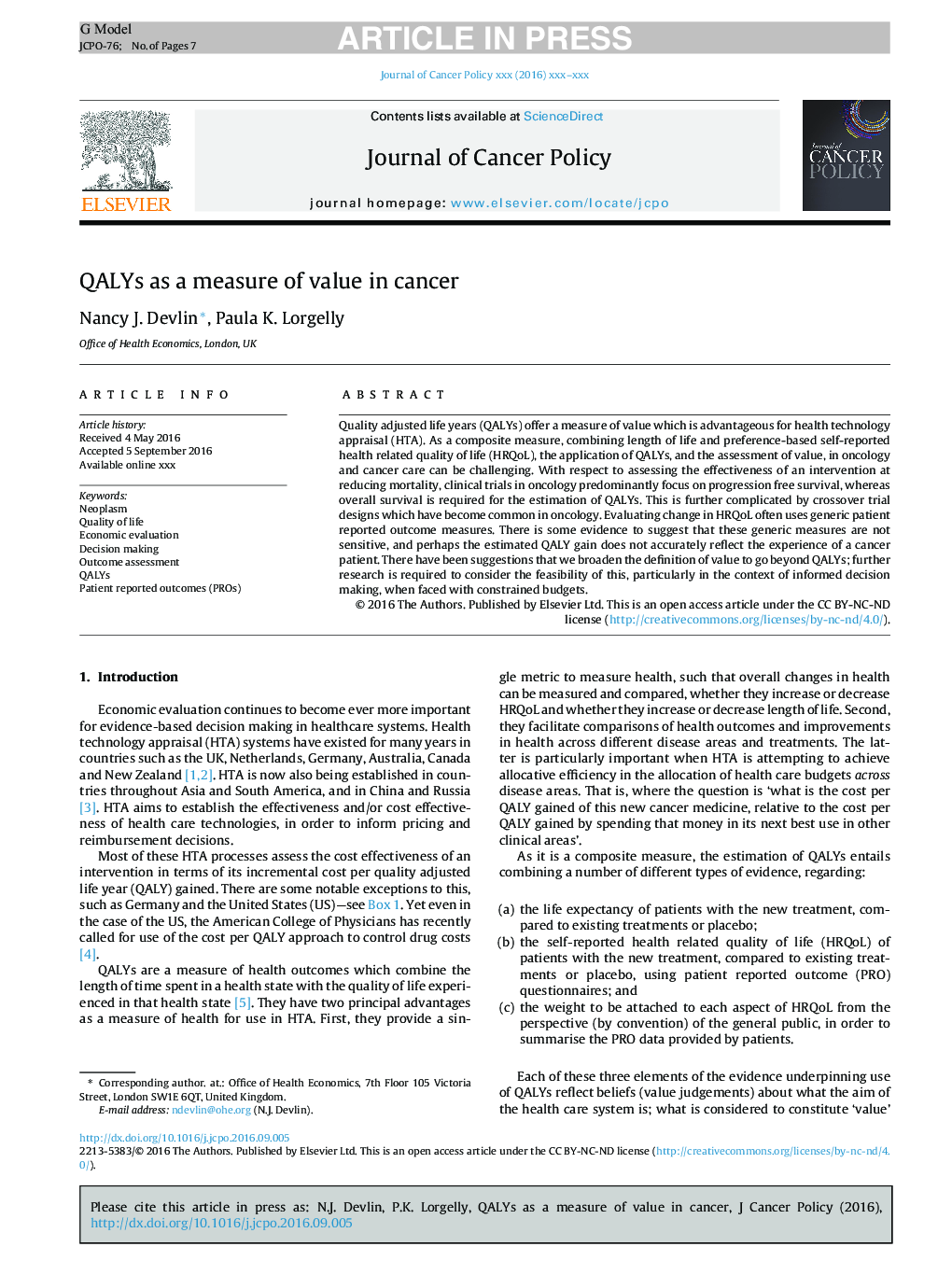| Article ID | Journal | Published Year | Pages | File Type |
|---|---|---|---|---|
| 5701395 | Journal of Cancer Policy | 2017 | 7 Pages |
Abstract
Quality adjusted life years (QALYs) offer a measure of value which is advantageous for health technology appraisal (HTA). As a composite measure, combining length of life and preference-based self-reported health related quality of life (HRQoL), the application of QALYs, and the assessment of value, in oncology and cancer care can be challenging. With respect to assessing the effectiveness of an intervention at reducing mortality, clinical trials in oncology predominantly focus on progression free survival, whereas overall survival is required for the estimation of QALYs. This is further complicated by crossover trial designs which have become common in oncology. Evaluating change in HRQoL often uses generic patient reported outcome measures. There is some evidence to suggest that these generic measures are not sensitive, and perhaps the estimated QALY gain does not accurately reflect the experience of a cancer patient. There have been suggestions that we broaden the definition of value to go beyond QALYs; further research is required to consider the feasibility of this, particularly in the context of informed decision making, when faced with constrained budgets.
Related Topics
Health Sciences
Medicine and Dentistry
Oncology
Authors
Nancy J. Devlin, Paula K. Lorgelly,
